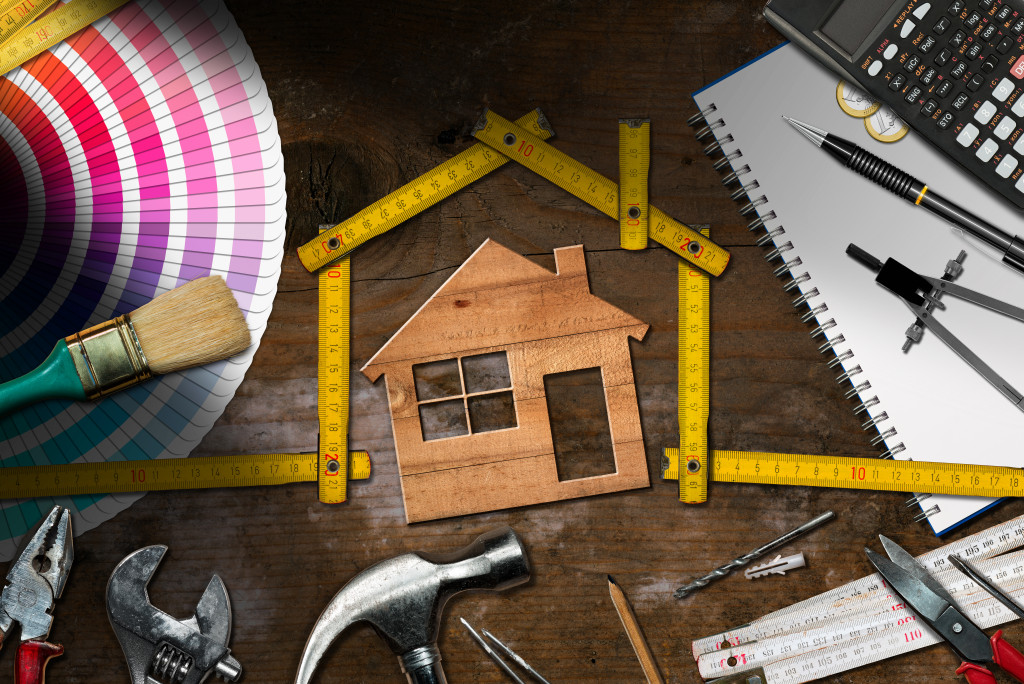- Smart financial decisions, including investing in education, home acquisition, and retirement planning, ensure future stability and success.
- Education investments yield returns by improving career prospects, promoting lifelong learning, and enhancing financial literacy.
- Homeownership is a significant investment offering wealth generation, stability, and the potential for efficiency through modern design and technology.
- Early and mindful retirement planning, including employer plans and diversified portfolios, provides financial security later in life.
Smart financial choices form the cornerstone of a stable and secure future. Many people may not realize that their financial decisions can significantly impact their quality of life in the long run. According to a National Foundation for Credit Counseling survey, 60% of American adults admit they do not maintain a budget, and 25% do not pay all their bills on time. Similarly, a report from CNBC states that 42% of Americans have less than $10,000 in savings, placing them at risk of financial hardship in retirement. These statistics underscore the significance of making smart financial choices, such as investing wisely, budgeting, and saving, to ensure financial security and independence.
Of course, accounting for your expenses will be necessary, but knowing where your finances will be allotted is just as critical. Here are a few areas where your money would be put to the best use:
Education

Investing in education is a vital aspect of intelligent financial planning. It enhances your knowledge and skills and significantly improves your career prospects and earning potential. A well-rounded education equips you with the tools to navigate the dynamic, ever-changing job market, providing a stable foundation for future financial growth. Education also empowers individuals to make informed decisions about their personal and financial lives, improving their quality of life.
There are several areas within education where your investment can yield substantial returns:
- Tertiary Education: This includes college or university degrees. These qualifications can open doors to high-paying job opportunities and are often prerequisites for many professional roles.
- Vocational Training: Vocational courses or trade schools provide practical, job-specific skills. These programs can lead to lucrative careers in technology, health care, or the skilled trades.
- Continuing Education and Professional Development: Lifelong learning and skills development are vital in today’s fast-paced job market. Investing in additional certifications, training, or advanced degrees can help keep your skills relevant and increase your marketability.
- Financial Literacy: This is an often overlooked but crucial area of education. Understanding how to manage money, invest wisely, and plan for the future can significantly contribute to your long-term financial stability and success.
Home Acquisition and Improvement

Investing in homeownership is another intelligent financial decision. Owning a home is not just about having a place to live; it’s also a form of investment that can generate significant wealth over time. Home equity can serve as a financial safety net, and real estate often appreciates, offering potential profits when it’s time to sell. Furthermore, homeownership provides stability and security that renting simply cannot match.
Here are a few factors to consider when investing in homeownership:
Location
Location is a crucial aspect of buying or improving a home. Specific neighborhoods may have better school districts, lower crime rates, and higher property values, making them ideal for homeownership. Another location aspect to consider is the availability of essential amenities, such as public transportation, grocery stores, and recreational facilities.
Home Design
Designing a home to suit your needs and preferences is a wise investment, mainly if it includes sustainable features that can save money in the long run. Consider your choices when choosing a home design, and think about the potential resale value if you plan to sell.
Home Efficiency
Investing in a home that will make you more efficient in energy usage, water consumption, and maintenance costs can save you thousands of dollars over the years. Be sure to look for features like energy-efficient appliances and paned windows. Additionally, a properly framed flat roof light can provide ample natural light, reducing the need for artificial lighting and saving on electricity costs. These small details can make a big difference in your long-term financial planning.
Smart Home Systems
If there’s one trend in modern homes that can significantly impact daily life and finances, it’s smart home systems. These systems allow you to control appliances, lighting, heating, and cooling remotely, reducing energy usage and costs. Smart home technology continually evolves, so investing in these features can pay off.
Retirement Planning
Building a robust retirement fund is a critical aspect of financial planning that ensures you maintain your quality of life in the later stages. Given the unpredictability of life events, healthcare costs, and economic conditions, having a nest egg set aside for retirement can provide peace of mind and financial stability. Neglecting to plan for retirement can lead to financial stress and dependence on others in your golden years.
Here are some ways to effectively build your retirement planning:
- Employer Retirement Plans: If your employer offers a 401(k) or similar plan, take full advantage of it. Most employers will match a portion of your contributions, effectively giving you free money.
- Individual Retirement Accounts (IRAs): These are tax-advantaged accounts for retirement savings. There are several types of IRAs, including traditional, Roth, and SEP, each with unique advantages.
- Diversified Investment Portfolio: Diversification can help minimize risk in your investment portfolio. Investing in a mix of stocks, bonds, and other assets can provide a balance of risk and return.
- Automate Your Savings: Setting up automatic contributions to your retirement fund ensures that you consistently save without thinking about it. This can be particularly helpful if you struggle with keeping discipline.
- Periodically Review and Adjust Your Plan: It’s essential to revisit your retirement plan regularly and make adjustments based on changes in your income, expenses, life events, and financial goals.
Final Thoughts
Making smart financial choices requires knowledge, discipline, and a long-term view. Education, homeownership, and retirement planning are vital areas where investing wisely can significantly impact your future financial stability and success. Consider these aspects when making critical financial decisions to set yourself up for a secure future. Remember, the earlier you start planning and implementing these strategies, the better off you will be in the long run.

